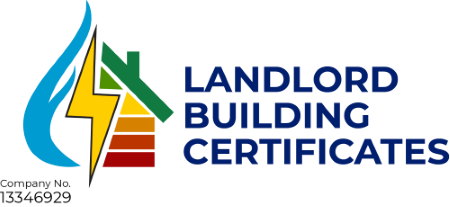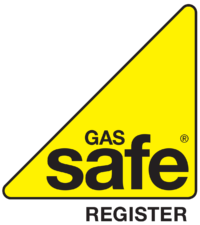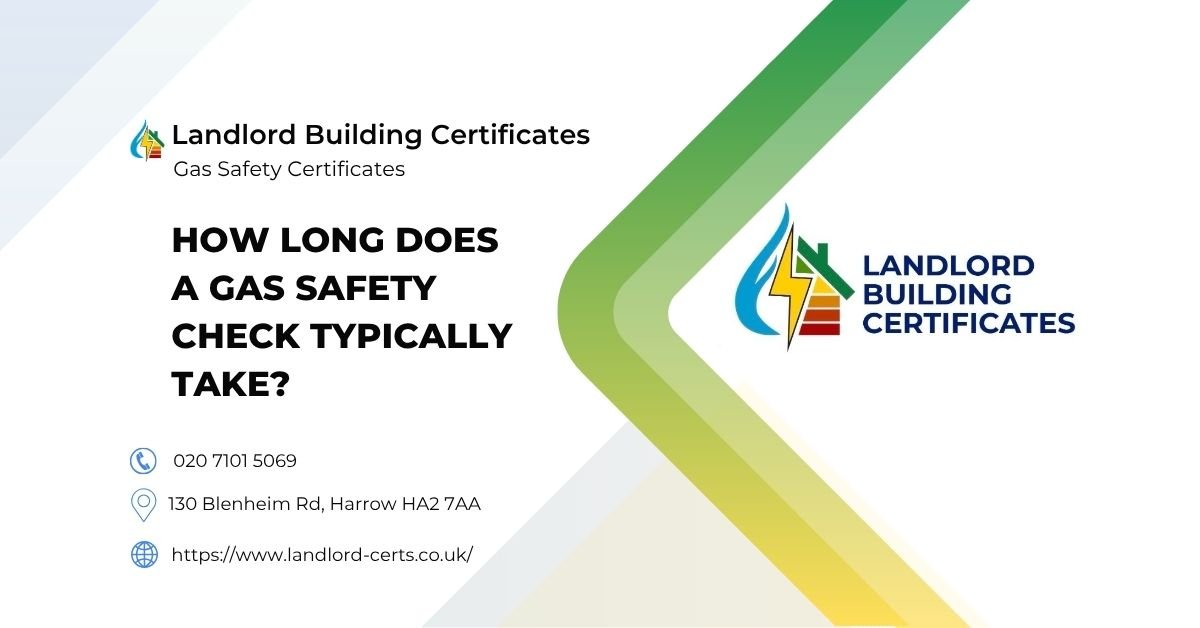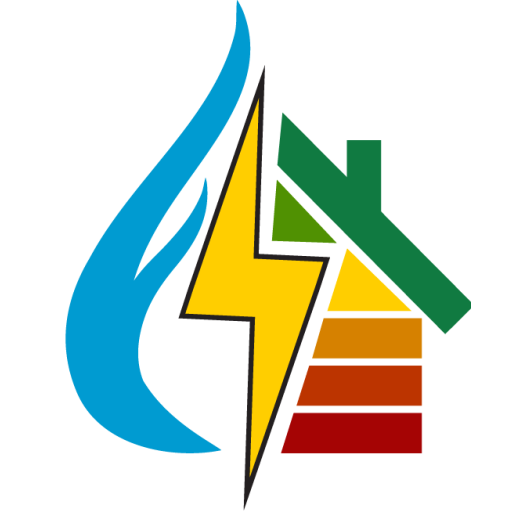How long does a gas safety check take in a residential property in NW, W, and SW London?
A standard gas safety check in a London home takes between 30 and 60 minutes. The time required depends on several factors, including the number of gas appliances, the condition of the installation, and the ease of access. Flats and terraced houses common in areas such as Camden, Ealing, and Richmond often include gas boilers and cookers that need full inspection. For properties with more complex layouts or additional appliances, the check can take longer. Preparation and unrestricted access can help ensure a faster, more efficient inspection.
Here's What We Have Covered In This Article
Why landlords must take gas safety seriously
Gas safety is a legal responsibility for landlords in North West, West, and South West London. Each year, people are harmed by preventable gas-related incidents like leaks or carbon monoxide exposure. To help prevent this, landlords must arrange annual checks to ensure gas appliances and systems are working safely. This article explains how long these checks usually take, what to expect, and how the process can vary depending on the type of property and location.
What is a Landlord Gas Safety Certificate (CP12)?
Definition and Legal Framework
A Landlord Gas Safety Certificate, often called a CP12, is a document given to landlords after a registered gas engineer has inspected the property. It shows that gas appliances and flues have been checked and meet legal safety standards.
Who Can Issue It?
The inspection must be done by someone listed on the Gas Safe Register. These engineers are trained and qualified to work with gas in homes and other properties. You can check the gas safe register online to confirm if someone is properly certified.
Why It Matters
Having a valid CP12 shows that you’ve followed the rules under the Gas Safety (Installation and Use) Regulations 1998. It proves your appliances are safe and helps protect your tenants. It also helps prevent issues with insurance or legal claims if anything goes wrong.
Legal Requirements for Landlords in London
What the Law Says
By law, landlords must have all gas appliances, fittings, chimneys, and flues in rented homes checked every year. This applies whether you own a single flat or manage several properties. The law also requires that tenants are given a copy of the gas safety certificate within 28 days of the check, or before they move in if they’re new.
Regulations to Know
The main law covering this is the Gas Safety (Installation and Use) Regulations 1998. It places the responsibility firmly on landlords to make sure inspections are done by a qualified engineer every 12 months. If this doesn’t happen, you could face fines or legal action.
Responsibilities Beyond the Appliances
Even if tenants own their own gas appliances, you still have to ensure that shared flues and chimneys are safe. You are also expected to keep records and make them available for inspection if needed.
Penalties for Getting It Wrong
Failure to carry out proper gas checks can lead to a fine or even a prison sentence in serious cases. Not doing these checks puts lives at risk, especially if carbon monoxide is involved.
How Long Does a Gas Safety Check Typically Take?
Time Expectations
For most homes in London, a gas safety check takes about 30 to 60 minutes. A smaller flat with a boiler and cooker might be done in half an hour. A larger house or an HMO with several appliances could take longer. If the engineer finds a fault or needs to make any repairs, that can add more time.
What Affects the Timing?
Several things affect how long the check will take. These include:
Number of Appliances
Each gas appliance in the property needs to be checked individually. More appliances increase the time required.
Size and Layout
Larger properties or those with appliances located in different areas usually take more time to inspect.
Access and Condition
If appliances are hard to reach or if tenants haven’t cleared the space around them, it will slow the process. Poorly maintained appliances can also extend the check.
A Realistic Estimate for Landlords
When you book a gas safety check, allow an hour. That gives the engineer enough time to inspect everything properly, especially if there are any issues to address. Let tenants know in advance and make sure all areas with gas appliances are accessible.
What happens during a gas safety inspection?
Step by Step Overview
The gas safety check involves a detailed inspection of all gas appliances, pipework, chimneys, and flues. A Gas Safe Registered Engineer tests whether each appliance works correctly and safely.
Appliance Functionality
The engineer checks appliances such as boilers, cookers, and gas fires. They confirm that each one ignites properly, operates at the correct pressure, and burns fuel cleanly. Faulty ignition or poor combustion can point to safety issues.
Ventilation and Flue Safety
Proper ventilation is essential. The engineer checks for blockages or poor airflow. They also inspect flues to confirm harmful gases are being safely expelled outside the property.
Safety Device Testing
All safety devices including flame supervision devices, pressure release valves, and thermostats are tested. The engineer ensures that these devices respond correctly and reliably.
Visual Inspection of Pipework
Pipework is visually assessed for damage, wear, or corrosion. Any signs of leaks are followed up with diagnostic tools.
Pro Tip: Encourage tenants to report unusual boiler noises or pilot light issues early. Catching these signs before your check can prevent certificate failure.
Book a Certified Gas Safety Check Today
Stay legally compliant and protect your tenants with a qualified inspection.
Is boiler safety the main concern during a gas safety check?
The boiler often plays a central role in a property’s heating and hot water system. For that reason, it is a key focus during the safety inspection. Engineers look for pressure irregularities, visible damage, and signs of poor combustion.
Warning Signs That Should Not Be Ignored
Some problems are easier to spot than others. A pilot light that keeps going out, black or brown marks around the appliance, or loud banging noises can all signal faults. In older systems, limescale buildup, rust on casing, or poor water pressure may also be indicators that the boiler needs servicing or replacing.
Boiler Repairs and Follow Up
If the engineer identifies any problems with the boiler, they may label it as At Risk or Immediately Dangerous, depending on the level of fault. In these cases, it will be disconnected until repairs are made. Landlords should contact a qualified engineer quickly to carry out necessary repairs or replacements.
Related Resource
You can read more on keeping your boiler in top condition in our landlord boiler maintenance guide.
How should landlords prepare for a gas safety inspection?
Inform Tenants Ahead of Time
Give tenants plenty of notice before the scheduled visit. This helps make sure the engineer can access all rooms with gas appliances. Tenants should be reminded to clear space around appliances and provide any keys needed for locked areas.
Make Appliances Accessible
The engineer needs to examine the appliance as well as pipework and ventilation points. If cupboards or storage items block access, the inspection may be delayed or not completed fully. Encourage tenants to make these areas clear.
Have Relevant Paperwork Ready
If there were previous checks or repairs, keep those documents available. It helps the engineer assess whether there have been ongoing issues or whether the current system meets compliance based on any updates.
Bundle Your Certificates and Save Time
Get your CP12, electrical, and energy certificates done in one visit. Save time and simplify compliance.
What does a Gas Safe engineer actually do?
Professional Responsibility
A Gas Safe Registered Engineer is legally qualified to carry out inspections, installations, servicing, and repairs of gas systems. Their registration number and identity card can be verified online through the Gas Safe Register. Always ask to see these credentials before letting work begin.
Detailed Process
They follow a clear checklist based on safety standards laid out by the Health and Safety Executive. This includes checking for gas leaks using detection equipment, ensuring proper pressure levels, testing flues and chimneys, and verifying the performance of all safety features.
Why It Matters
These engineers play a direct role in keeping your tenants safe. Their certification guarantees they understand current regulations and best practices. Hiring an unregistered person is not only illegal but puts lives at risk.





